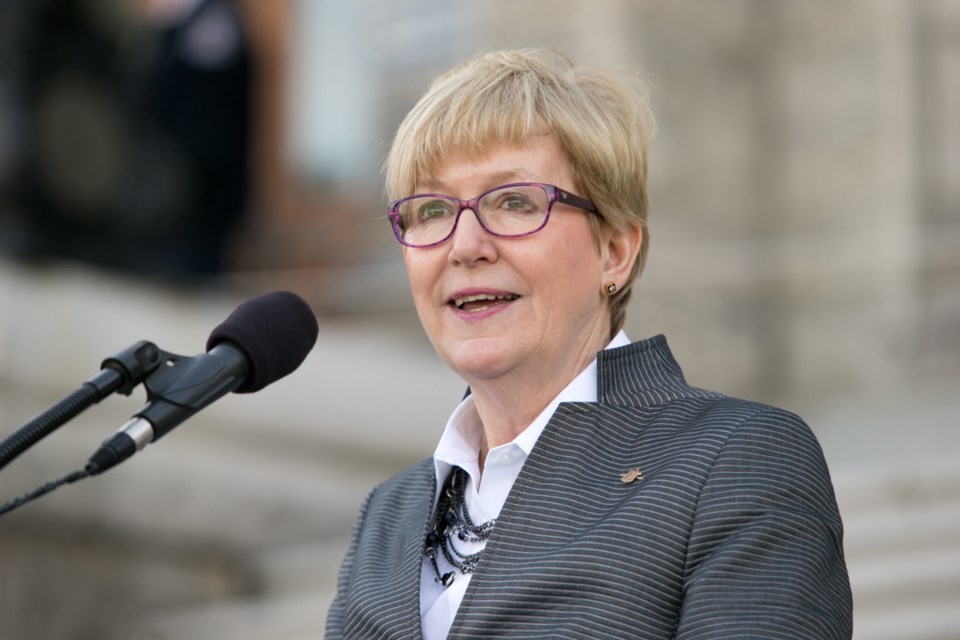 It’s remarkable how little the government of B.C. has said when it comes to responding to one of the most momentous political events in years.
It’s remarkable how little the government of B.C. has said when it comes to responding to one of the most momentous political events in years.
It’s been three weeks since the Supreme Court of Canada cemented aboriginal title for all time as one of the prime considerations for doing business on the land in B.C. The Tsilhqot’in decision on June 26 goes down in the books as the latest and most definitive word in a generation’s worth of court cases.
A host of interests have weighed in on what it means — except for the government most directly involved in living with the decision. The only formal response has been some references to a cabinet meeting with all B.C. Indian chiefs set for Sept. 11. And that was in the works well before the court decision came down.
Justice Minister Suzanne Anton was delegated to answer a very few questions, issuing a five-paragraph statement that doesn’t even begin to address the many issues about what it all means.
John Rustad, B.C.’s minister of aboriginal relations and reconciliation, hasn’t said a word publicly about the momentous decision. Interview requests to his ministry this week were refused.
No doubt officials are working furiously in private to come up with some kind of strategic response.
And one of the routes forward believed to be under consideration is the idea of reaching back into the past and resurrecting something from six years ago that was floated as a concept, but sank without a trace right on the eve of being launched.
It’s the Recognition and Reconciliation Act, a bill proposed by the Gordon Campbell government that would have more or less endorsed the current view of aboriginal title years before the high court laid down the law.
The proposed bill fell apart in the middle of a flurry of concerns from Indian bands all over B.C., as well as unease in the business world about the import of such a move.
But re-reading the concept today in light of the latest decision, it looks as if it could stand as a way of formally accepting the inevitable — First Nations have a valid legal claim over huge tracts of B.C. that must be recognized by everyone.
The origins of the bill were in the New Relationship and Transformative Change Accord, signed by the government and native leaders in 2005. Those were basically agreements signed over handshakes to deal First Nations in to a much greater degree than previously.
Native leaders later began pressing to have the understandings formalized in law and in 2008, work was well underway on a bill that would have accomplished that.
It was never released, but the outline stated it would have simply recognized aboriginal title, which would have erased the need for bands or nations to file expensive, time-consuming land claims to make their cases. It would have created shared decision-making mechanisms over claimed land along with formal benefit- and revenue-sharing. It would have superseded numerous provincial processes.
The Recognition and Reconciliation Act was reassuringly pitched as a logical next step that acknowledged the cascading series of major court decisions that urged governments to do as much.
It got as far as a mention in a throne speech, then the effort fell apart. The work ran right into the election cycle and by March 2009, it was considered too big a move to make just before a vote. A number of people got spooked by the implications.
And on the native side, there was widespread alarm at one element of the bill, which allowed for the possibility of realigning native entities into 30 indigenous nations to ease the prospect of logjams in government-to-government dealings with 200 bands. Hundreds of chiefs grew anxious and power politics ruled.
Today, however, the concept reads like a simple affirmation of what the Supreme Court of Canada ruled unanimously.
With the famous line from an earlier ruling still valid — “We are all here to stay” — if Clark needs something to take to the All Chiefs Gathering, this response is just sitting on the shelf waiting.



